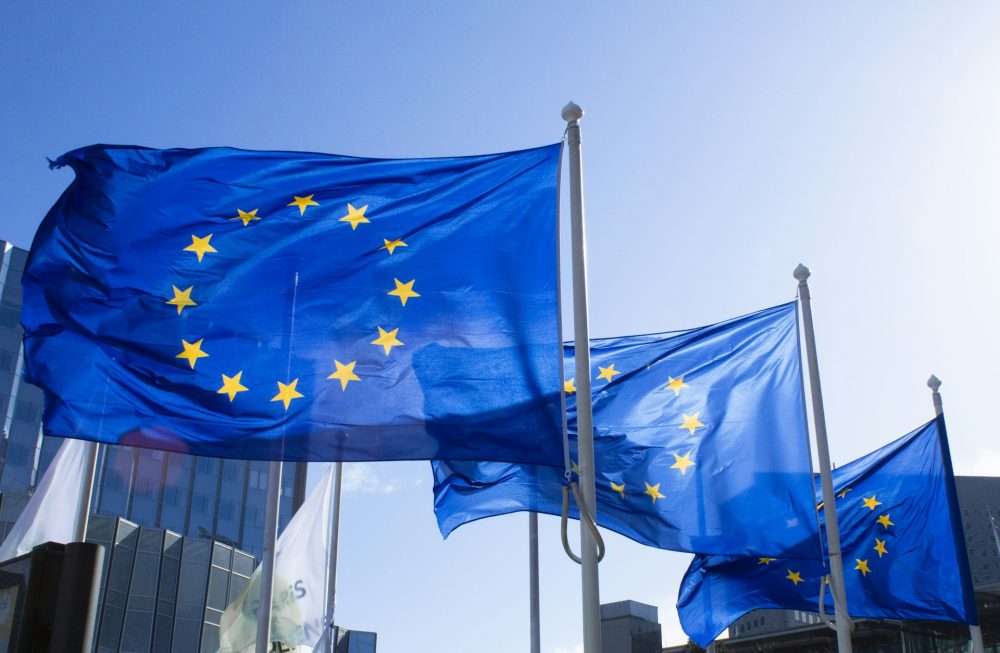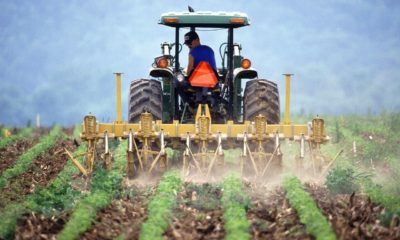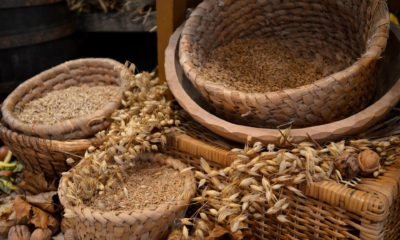Africa
Syngenta Morocco and Agrin help small farmers to cope with the effects of the pandemic
Two Moroccon companies are committed to help small farmers tackle the difficult situation caused by the COVID-19 pandemic. The choice of the areas that will benefit from this donation was a delicate matter for the two operators, since they estimate that thousands of producers need it. Thus, the operation targeted two agricultural cooperatives in the regions of Saïss (Taounate) and Doukkala.
Organized by Syngenta Morocco and Agrin Morocco, a distribution operation of high-performance wheat seeds to 220 farmers took place. The objective is to support small farmers facing the effects of the health crisis.
If you want to find more about the economic situation in Morocco and how small farmers are being helped to cope with the effects of the health crisis caused by COVID-19, download for free the Born2Invest mobile app. Our companion app brings you the most important economic news from around the world, so you can stay informed.
Small Moroccon farmers supported to cope with the crisis caused by the pandemic
Syngenta Maroc and Agrin Maroc, two companies working in the agricultural sector, have jointly organized a distribution operation of high-performance wheat seeds for the benefit of two agricultural cooperatives. The operation consisted in the distribution of 440 quintals of high-performance wheat seeds with innovative protection against diseases, to the benefit of 220 producers in two regions of the kingdom.
“The objective is to support Moroccan farmers, especially the smallest among them, to cope with the effects of the COVID-19 crisis as well as the impacts of climate change, which materialized by two consecutive years of drought and a significant drop in production in cereal farming,” said Axel d’Hauthuille, Managing Director of Syngenta Morocco.
The choice of the areas that will benefit from this donation was a delicate matter for the two operators, since they estimate that thousands of producers need it. Thus, the operation targeted two agricultural cooperatives in the regions of Saïss (Taounate) and Doukkala. These two areas were particularly affected by the lack of water since there is no possibility of irrigation.
“We knew these two cooperatives, which are small in size with well-supervised producers who are motivated to make technical progress and produce better. We are going to accompany them through the cycle to harvest so that they can generate decent yields,” said Syngenta’s CEO.
The agricultural sector is very important for the country’s GDP
Targeting wheat farmers in the Doukkala and Fez regions also aims to support a sector that is crucial to the country’s GDP growth, wealth creation and rural employment. It is at the heart of the government’s new strategy in the agricultural sector, the “Green Generation Plan,” which promotes sustainable agriculture that creates jobs and value, with a view to the emergence of a middle class in the rural world.
The company Syngenta said it will invest $2 billion in sustainable agriculture by 2025
This operation is also part of The Good Growth Plan, promoted by the Syngenta group at the global level to encourage a more efficient and more ecological restart of the post-COVID-19 agricultural sector. Through this plan, launched in 2013, Syngenta commits to invest $2 billion in sustainable agriculture by 2025 to accelerate innovation for farmers, promote carbon-neutral agriculture, and help farmers work in safe and healthy conditions. The plan will also impact the agricultural sector through the on-the-ground efforts of Syngenta Morocco, its teams, and local partners for the benefit of farmers.
__
(Featured image by icon0.com via Pexels)
DISCLAIMER: This article was written by a third party contributor and does not reflect the opinion of Born2Invest, its management, staff or its associates. Please review our disclaimer for more information.
This article may include forward-looking statements. These forward-looking statements generally are identified by the words “believe,” “project,” “estimate,” “become,” “plan,” “will,” and similar expressions. These forward-looking statements involve known and unknown risks as well as uncertainties, including those discussed in the following cautionary statements and elsewhere in this article and on this site. Although the Company may believe that its expectations are based on reasonable assumptions, the actual results that the Company may achieve may differ materially from any forward-looking statements, which reflect the opinions of the management of the Company only as of the date hereof. Additionally, please make sure to read these important disclosures.
First published in LesEco.ma, a third-party contributor translated and adapted the article from the original. In case of discrepancy, the original will prevail.
Although we made reasonable efforts to provide accurate translations, some parts may be incorrect. Born2Invest assumes no responsibility for errors, omissions or ambiguities in the translations provided on this website. Any person or entity relying on translated content does so at their own risk. Born2Invest is not responsible for losses caused by such reliance on the accuracy or reliability of translated information. If you wish to report an error or inaccuracy in the translation, we encourage you to contact us.

-

 Crowdfunding1 week ago
Crowdfunding1 week agoSavwa Wins Global Design Awards and Launches Water-Saving Carafe on Kickstarter
-

 Biotech2 weeks ago
Biotech2 weeks agoAsebio 2024: Driving Biotechnology as a Pillar of Spain and Europe’s Strategic Future
-

 Business3 days ago
Business3 days agoDow Jones Nears New High as Historic Signals Flash Caution
-

 Business2 weeks ago
Business2 weeks agoFed Holds Interest Rates Steady Amid Solid Economic Indicators























